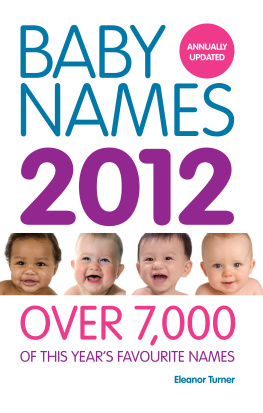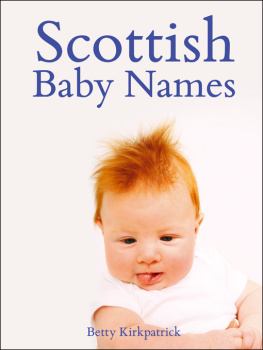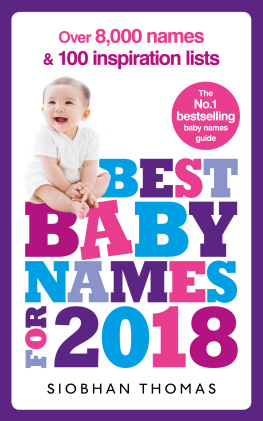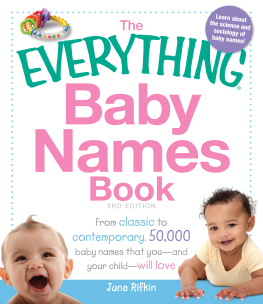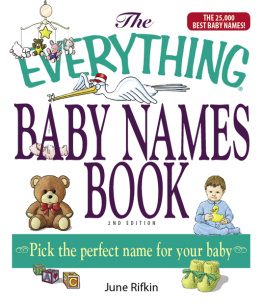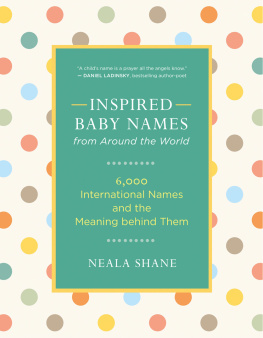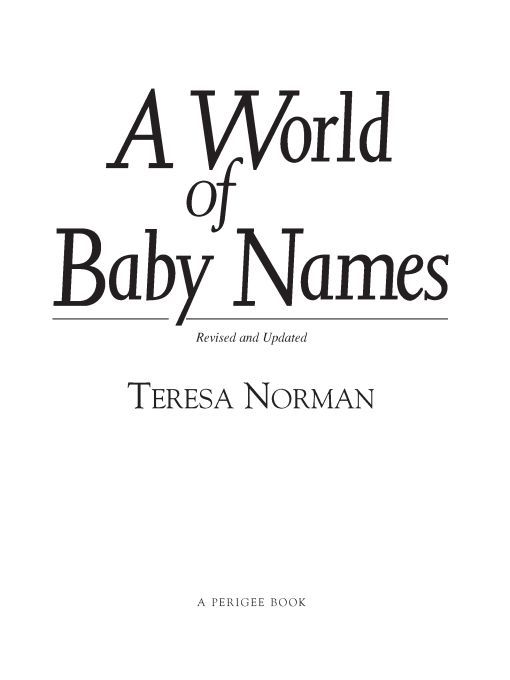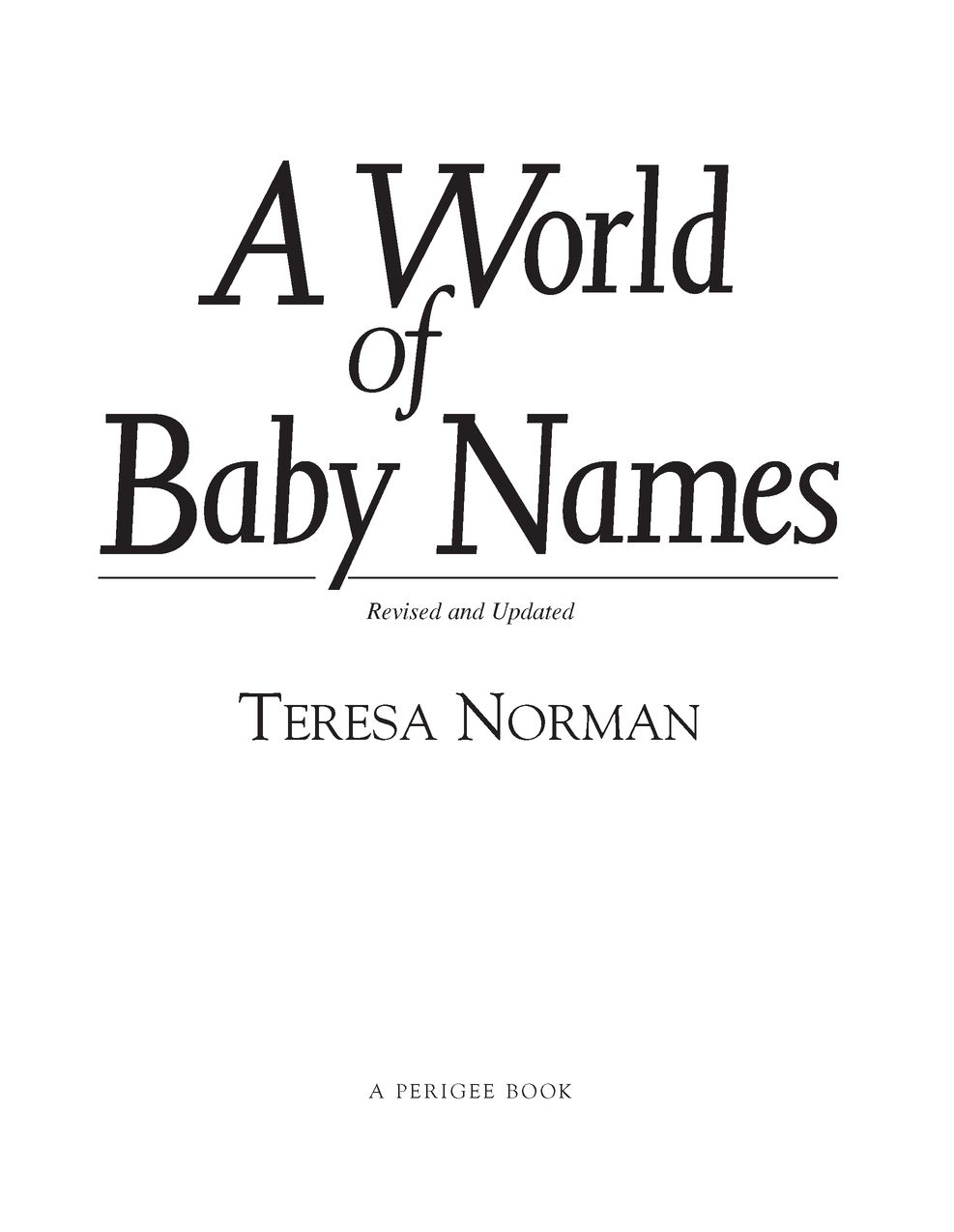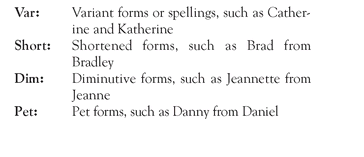Table of Contents
Most Perigee Books are available at special quantity discounts for bulk purchases for sales promotions, premiums, fund-raising or educational use. Special books, or book excerpts, can also be created to fit specific needs.
For details, write: Special Markets: The Berkley Publishing Group, 375 Hudson Street, New York, New York 10014.
To my mother, June Wray...
she has given me the precious gifts of life and love.
To my wonderful husband, John...
his steadfast love and support I treasure dearly.
And to my beloved children:
John Michael, Brian, Joseph, and Anne...
named before this book was written,
they are my inspiration.
Acknowledgments
THIS PROJECT was completed with the help and support of many people. A special thanks goes out to my mother, June Wray, to Christina Arbini, Silvia Butler, Esme Bird, Dasari Rao, You Bi, Sophia (Dao Ming) Ding, Yuliya Anatolievna Shilina, Mariya Yakovlevna Shilina, Thanh Binh Bui, and Thao Thu Hong for their contributions. I am indebted to them all.
Teresa Norman, 2003
Introduction
IN 1992, 974,000 people legally immigrated to the United States from at least sixty-four different countries, bringing with them their languages, their cultures, and their names. But, like many of our immigrant great-grandparents, one of the first things many of them did was adopt an American name as a way to better assimilate into American society.
In an effort to reaffirm our cultural identity, we often begin by choosing ethnic names for our children. African-Americans are bestowing more African names upon their offspring than before; people of Irish ancestry are choosing Gaelic names; Native Americans are selecting names from their native languages; people who adopt children from foreign countries often seek out a name from the childs homeland. An ethnic name enables us to identify with a larger group sharing a common heritage.
A World of Baby Names contains names from more than sixty countries and many different languages and cultural groups, as well as biblical names, and astrological and mythological names. The book also includes information on naming customs and name lore as pertains to each country or cultural group.
Ive always been fascinated by the study of names. For me, it goes beyond just learning the meaning of names and actually offers an interesting look at the history of many cultures: the way they lived; the languages and dialects they spoke; and the social customs and political influences that affected their lives. Thousands of years of civilization unfold through the study of names: the great intellectual triumphs of India and China a thousand years before the Europeans managed to crawl out of the Dark Ages; the spread of Christianity and Islam; golden ages of reason and learning; dark ages of ignorance, fear, and brutal conquest; and the search for freedom and new, uncharted territories. Every major historical event has affected the types of names found in different times and in different lands. In this book, Ive tried to do more than just list thousands of names from around the world. Ive tried to give the names historical and cultural context. Ive tried to make learning about names as exciting for you as it is for me.
Whether you are searching for a special name for your precious child, helping a youngster to find the history and meaning of his or her name, or just browsing out of curiosity, I hope this book can be of service to you.
If you have a favored name you would like to share, or a cultural group or language you would like to see listed, I would be pleased to hear from you. You can write me through my publisher, Perigee Books.
Each entry in A World of Baby Names is alphabetized according to the English alphabet; thus, entries having initial letters with a diacritical mark, such as mund, are alphabetized as if they had none.
Many entries contain a cross-reference. When the cross-reference is, for example, See MARY or See JOHN (Male Names), Mary (or John) can be found in the same chapter. However, if the cross-reference is, for example, See MARY (English Names), Mary will be found in the chapter indicated.
Although pronunciations have been included in this book, it is important to be aware that many sounds spoken in other languages have no English equivalents. Also note that names are pronounced differently in different parts of many countries, as the name Sarah is in the U.S. Therefore, many pronunciations are approximate and at times, just the most common are used.
Abbreviations Used in This Text
CHAPTER ONE
African Names
AFRICA IS home to hundreds of languages and more than a thousand ethnic groups. Though customs vary, the naming traditions of the major cultural groups discussed in this chapter are representative of those across the continent.
Children are revered throughout Africa and the birth of a child is an occasion for rejoicing. The naming ceremony is generally ritualistic and festive. It is cause for celebration to distinguish the childto welcome him into the community and to congratulate the parents.
A persons name is considered his most valuable possession, for it is the only thing that can survive death. Great care is therefore taken in selecting a childs name, and many factors are considered before the name is chosen. Names such as the female Komuko (this one will not die) and the male Zimoko (thank you) reflect the sad fact of high infant mortality and the parents fervent hope that their child will survive. Birth order, the day of the week on which the child is born, important events, physical characteristics, religion, and circumstances surrounding the childs birth are important considerations in choosing a name.
A Yoruba child is named on the seventh day after birth if it is female and on the ninth day if the baby is male. Twins and children born to Christian or Muslim parents are named on the eighth day. Three names are bestowed at the naming ceremony: the personal name (the oruko), the praise name (the oriki), and the kinship name (the orile).
Traditionally, the oruko name is based on circumstances surrounding the birth or the familys living situation at the time. Examples of these types of names include the male name Adebayo (he came in a joyful time) and the female Abidemi (born during the fathers absence). Other examples of oruko names fall into the category called born-with names and include Taiwo (firstborn twin) and Kehinde (second of twins). These twin names apply to children of either sex.
The oriki typically expresses the hopes the parents have for the childs future, or in some cases, simply refers to a unique attribute of the child. The female name Abimbola (born to be rich) and the male Adunbi (born to be pleasant) are examples of these names.
Finally, the orile name denotes which kinship group the child comes from. This genealogical name is often ancient, traced back as far as possible to the earliest known ancestor. This is comparable to our family names, which are often patronymics.


